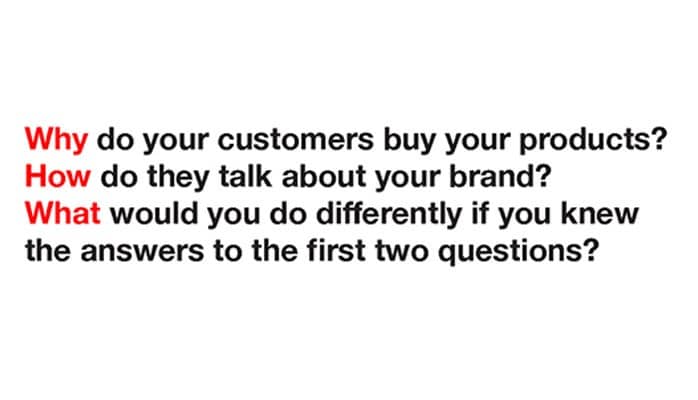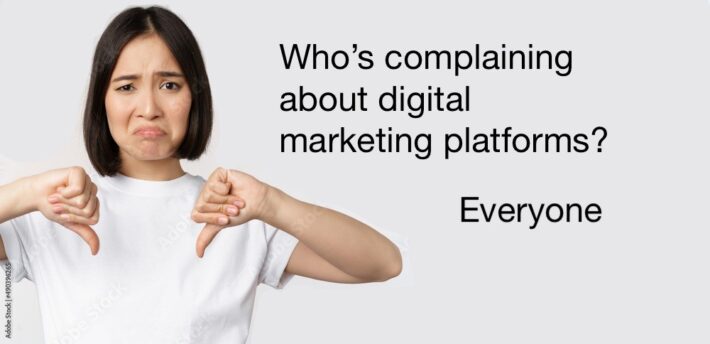If you’re hanging on until there’s a full reopening, you’re falling behind

It’s tempting to think that a vaccine or herd immunity will soon come along and things will return to normal. We don’t have to look too far back to see that what we most recently thought of as normal changed us forever. We felt less secure after 9/11 and began to place more emphasis on how we live our lives rather than on what we acquire. The Great Recession of 2007 – 2009 caused us to spend less and save more. Now, out of the coronavirus pandemic, a new set of changes to business and consumers is emerging.
When an unseen enemy is upon us on our streets, where we work and shop and even in our homes, we see everything around us differently. There will be a vaccine, maybe sooner or later, but we will never be the same and we will never think about the things we buy and the companies we work for in the same way. So, if you’re sitting tight and not evaluating everything your business does against the changes taking place, you’re digging yourself into a big hole.
Over a six-week period from late March to mid-May, we conducted an extensive survey of 530 senior executives from a diverse set of businesses in nine countries. The survey objective was to determine how event marketing was likely to change. In it, we asked a number of multiple- choice questions but at the end included two open-ended questions: (1) What do you think is the future of conferences, trade shows, festivals and business group gatherings? How might things be different if at all? and (2) What other comments do you have on the impact of global pandemics and the way life and business will change in the future?
The interesting thing about asking an open-ended question is that people respond with what’s important to them and it may have to do directly with the question asked or it may not. However, it tells you what is at the top of their minds. Our software is able to accept and analyze long text responses. The responses to the first were generally within the scope of the question. When classified and quantified, they can be shown as below:

What this says to those who are waiting for things to return to normal is that you better be innovating and investing in digital tools or you’ll be left behind. Note that only 8% of respondents felt confident that we’ll go back to what was then normal.
To the second question, there was a broad re-prioritization of what matters in life and business, not one predominant idea. The diversity of opinions suggests that regardless of when a vaccine comes along and is distributed, we are in for some major changes. Conducting business online is now embedded and while safe travel will return us to some off site meetings, as one respondent wrote, “Anything that can be done online, will be.” A recurring theme was to prioritize what is safe, sustainable, reasonable and responsible. Use those four words as a filter to everything you do and see if your business practices, products and services and the way you treat your customers measure up.

According to McKinsey*, “No one has failed to notice how the pandemic has shifted demand online. Twice as many consumers now shop online for groceries. Across categories, the number of consumers who now use digital channels has increased by an average of about 20 to 25 percent. And first-time digital consumers account for almost 40 percent of the growth in digital goods and services. As consumers shift to digital, loyalties are also in play: some 15 to 20 percent of US shoppers have switched websites since COVID-19 started.” Similar changes are taking place across all consumer goods and services.
Normal? It doesn’t exist and it won’t return. There are many changes you need to make in order to stay even or get ahead of the competition. Your biggest learning curve is likely to be how to use digital tools, not just to sell, but to build strong relationships with your customers. I’m not talking about building an email database or sending out sales emails. Those won’t protect you from brand switching, so much easier online. The need is to engage consumers with who you are and how you care for them, just like you would in-person. That requires a new type of digital approach, one that can empathize with their needs, just like you would if meeting in your store or their home. It’s the direction that digital marketing is going so get going because you’re falling behind as we speak.
*”Return: A new muscle, not just a plan” By Mihir Mysore, Bob Sternfels, and Matt Wilson, May 21, 2020
You can arrange for a demo of Oomiji’s platform that builds customer relationships.



